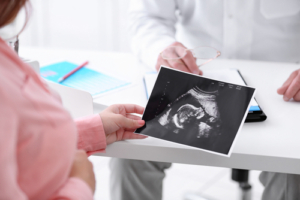 Some people use “birth injury” and “birth defect” interchangeably. But these terms couldn’t be more different. Birth injuries are entirely preventable, while a birth defect is typically caused by a genetic condition. Negligence, however, can be present in both situations.
Some people use “birth injury” and “birth defect” interchangeably. But these terms couldn’t be more different. Birth injuries are entirely preventable, while a birth defect is typically caused by a genetic condition. Negligence, however, can be present in both situations.
What Is a Birth Defect?
A birth defect is the result of a genetic abnormality or other inherited condition. Most birth defects occur in the early months of pregnancy though some birth defects develop later in pregnancy. Birth defects include problems such as:
- Congenital heart disease – an abnormality in the heart.
- Spina bifida – the spinal cord does not develop properly.
- Hearing loss – total deafness or poor hearing.
- Down syndrome – a chromosome disorder that causing intellectual and developmental delays.
- Cleft palate or cleft lip – openings in the lip and roof of the mouth.
- Club foot – the foot is twisted out of shape.
The severity of the birth defect will vary, but the structural changes – whether visible or within the body – affect how the body works, looks, or both.
A Doctor’s Responsibility to Prevent Birth Defects
Because birth defects are typically genetic and most cannot be prevented, holding a doctor responsible for your child’s condition is difficult to argue. However, what is the doctor’s responsibility is caring for the expectant mother and baby during pregnancy – this includes regular exams, ultrasounds, and other appropriate genetic testing and pregnancy testing, depending on maternal age, pre-existing conditions, and otherwise.
It is an obstetrician’s responsibility to:
- Recognize the presence of birth defects based on testing and examinations.
- Conduct all basic prenatal testing and advanced testing, as needed.
- Diagnose and treat conditions or infections in pregnancy that could lead to a birth defect.
- Warn mothers of the dangers of taking certain medications during pregnancy or continuing with certain habits (such as smoking and drinking).
- Take additional prenatal measures for older mothers.
- Carefully monitor mothers who have a condition such as gestational diabetes that could influence the development of a birth defect.
When a doctor fails to provide the standard of obstetric and gynecological care during a pregnancy, they could be held negligent for the development of a birth defect.
Caring for a Child with a Birth Defect
Birth defects, even if parents were aware of them before the child’s delivery, can be shocking to see. For many families who have a baby with a birth defect, it is often necessary for the child to have special care so he or she can survive and thrive.
Knowing ahead of delivery that your child will need intervention, therapy, or other medical support allows parents to secure help and get treatments and resources in place ahead of time. A doctor’s negligence in prenatal care can cause emotional suffering and mental trauma for parents who suddenly find themselves with a child who will face battles for a lifetime.
Living with Birth Trauma
A birth injury occurs when a doctor or other medical professional is negligent in their care or actions. This negligence can happen during the pregnancy, during labor and delivery, or following the baby’s birth. Nearly 30,000 birth injuries are caused at birth or shortly after birth, which can result in irreversible conditions such as cerebral palsy, Erb’s palsy, traumatic brain injury, spinal cord injury, and so much more.
Birth defects should be identified before a child’s entry into the world, but some expectant mothers are not given such information. If you have suffered because of poor prenatal care and a doctor’s negligence, contact Thurswell Law for a free consultation. Our attorneys have the experience to get you the compensation you deserve. We do not charge any fees unless you collect. Call (248) 354-2222 today to schedule your consultation.







